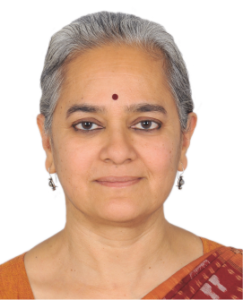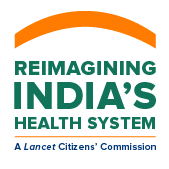In Conversation: Mirai Chatterjee, Director, Social Security Team, Self-Employed Women’s Association [SEWA]
Jun 15, 2022

Trained in public health, I studied Natural Sciences at Harvard University, followed by a Master’s at Johns Hopkins University’s School of Public Health. I joined SEWA in 1984 and our Founder, Elaben Bhatt asked me to start up a community-based primary health care program for SEWA members, I have stayed at SEWA ever since, and was its General Secretary after Elaben. SEWA’s primary work revolves around organizing women – bringing women together, uniting them and building the sisterhood and supporting them in forming membership-based organisations like cooperatives. Rather than developing parallel health services, we fill gaps in the government and private services, including occupational and mental health of informal women workers. In addition, we use our collective strength as a movement of unions and cooperatives to ensure that basic health services, and of good quality, actually reach women in a timely, transparent and inclusive manner. In order to do so, we have set up a health cooperative, Lok Swashtya SEWA. It is the first of its kind and dedicated to reaching primary health care to informal women workers and their families. Some of our studies and concrete health action with women have led to policy changes—the Rashtriya Swasthya Bima Yojana (RSBY) incorporated the experiences of VimoSEWA or SEWA Insurance and Jan Aushadhi was in part based on the health cooperatives’s experiences of running 24X7 low cost pharmacies.
There has not been a demand for health in the same way as for education. The common perception about education is that it is the way out of poverty. The same perception about universal health care doesn’t seem to be there yet, which I find puzzling. Many of the recommendations as part of the high-level expert group on Universal Health Coverage chaired by Dr Srinath Reddy find a place in the national health policy. However, the issue we face often in India is that we have good ideas but difficulty implementing those ideas. I think the citizens’ perceptions will feed into the Commission and I look forward to the fresh perspective that may emerge. I strongly believe that if we are to have universal health care in India – citizens will have to come first. They are central, and it is their hopes and dreams and needs that should drive us forward. I see my role in the Commission as bringing some of the voices and health concerns of informal women workers from across India to our discussions and to ensure that these are reflected in our final recommendations for UHC in India.
Lack of education and information about UHC and bottom-up demand are the critical challenges. In most countries, the citizens pushed for UHC to become a reality. In India, we don’t have that push. Our citizens’ engagement survey will throw up robust information and evidence. It will encourage us to push for the political will to act and in the right direction. I strongly feel that we need to invest in local frontline workers, particularly women – who have shown that they are second to none by consistently being out there on the front lines, especially during the pandemic. In addition, a decentralized approach where the details are left to the states and districts is essential. Our country is diverse, so all action must be very granular if we are to be relevant and if we are to serve our citizens, particularly the poorest and most vulnerable, in an appropriate manner.
The Commission houses some of the best minds in public health and expertise in the country. The real challenge is how we reach the highest echelons of leadership in India to make the recommendations heard and to result in tangible differences at the grassroots level. The recommendations need to result in comprehensive transformations in health architecture. Implementing in bits and pieces will have limited impact. Importantly, we will have to include action on the social determinants of health, even though this is challenging and efforts may appear diffuse at times. It is only a holistic and integrated approach to UHC that will ultimately benefit all Indians.
